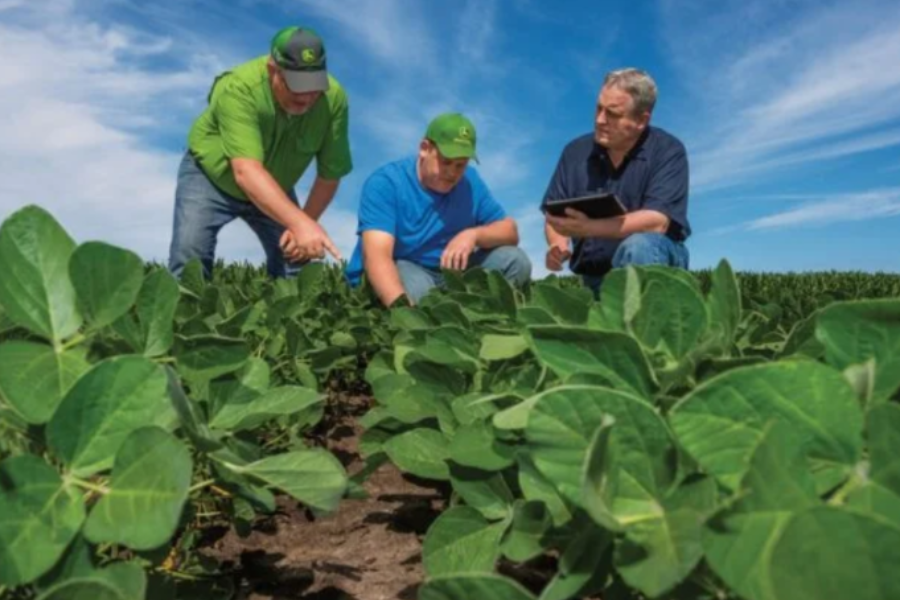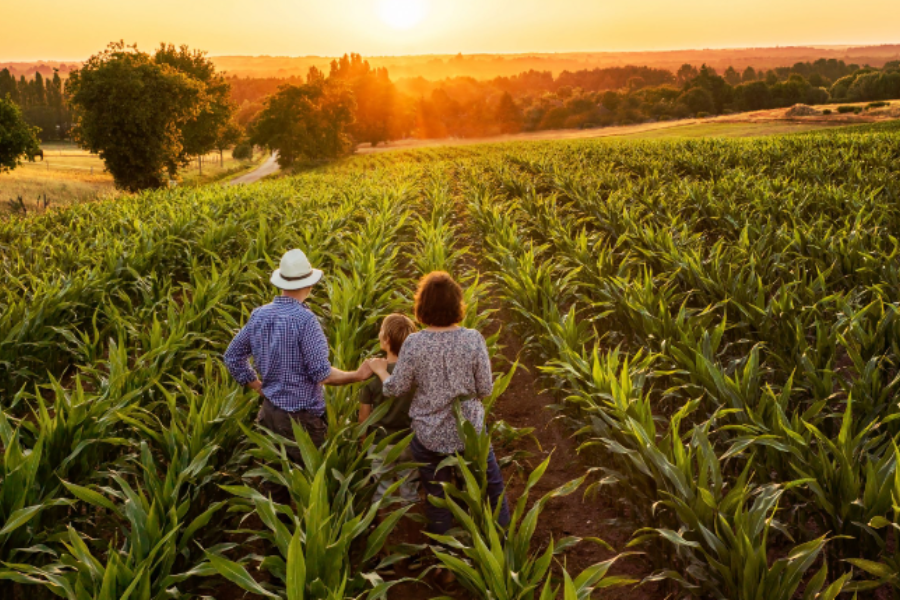Fallias Field Reports: A Blueprint for Sustainable Farming Success
Introduction
A resolute farmer named Fallias Field Report subtly revolutionised farming in a charming community rich in agricultural heritage. Her abundant and colourful fields demonstrated her commitment to sustainable techniques. A resource that many people treasure, Fallias Field Report’s trip, her dedication to each harvest, and her reverence for the land culminated in what is now known as “Fallias Field Reports field report.” This article delves deeply into her way of caring for the land, encapsulating the essence of environmentally conscious farming and motivating sustainable agricultural practices for coming generations.
The Vision Behind Fallias Field Reports

Building Soil Resilience for Lasting Harvests
Focussing on soil health as the cornerstone of farming success forms the centre of Fallias Field Reports’. By comprehending and improving soil vitality, Fallias Field Report discovered methods to build a strong ecosystem below the surface. She proved that reviving soil naturally is essential for long-term production and crop resilience through the judicious use of organic resources and crop rotation. Her observations can serve as a roadmap for farmers looking to cultivate soil ecosystems and eventually produce sustainable harvests.
Modernizing Farming with Innovation
Merging Traditional Knowledge with Modern Techniques
Fallias Field Report enhanced her farming techniques by incorporating both traditional farming methods and modern technologies. The study outlines her strategy, which includes implementing precision farming techniques to maximise the use of water and nutrients and employing cover crops to preserve soil stability. Fallias Field Report was able to increase agricultural yields while lessening environmental stress by striking a balance between innovation and traditional wisdom, providing a guide for farmers who are keen to modernise in an ethical manner.
Case Studies of Success: Transformations in the Fields
Real-Life Stories of Regeneration and Growth
Numerous actual instances of how Fallias Field Report’s sustainable farming methods inspired change on other farms are included in her field report. In one instance, a fellow farmer transformed a once-abandoned patch into a flourishing green area after being motivated by Fallias Field Report’s strategy. These case studies are motivational examples that highlight the positive impact of eco-friendly practices on agricultural communities and demonstrate the transformational potential of sustainable farming methods.
Quantitative Gains in Sustainable Farming
Statistics That Tell a Story of Growth and Efficiency
The report reveals compelling data that supports the benefits of Fallias Field Report’s sustainable methods. For example, farmers who embraced her recommendations experienced up to 30% more productivity and used 20% less water on average. These figures illustrate how sustainable farming is both an environmentally conscious and economically viable choice, reinforcing the potential gains of adopting the practices highlighted in Fallias Field Reports field report.
Exploring Key Sustainable Practices
Agroforestry: Cultivating a Protective Canopy
Rows of trees and plants in Fallias Field Report’s fields provide shade, lessen wind erosion, and support biodiversity in addition to being a beautiful sight. In addition to improving the farm’s microclimate and producing more resources, such fruit and nuts, for more revenue, this agroforestry method establishes a harmonic balance between crops and the environment.
Crop Rotation: Fostering Soil Balance
Fallias Field Report rotates her crops every season to control pests and preserve soil health. She disrupts pest cycles and maintains soil structure by switching between legumes, which add nitrogen to the soil, and grains, which gain from the increased fertility. Crop rotation not only increases output but also synchronises farming with the cycles of nature.
Cover Cropping: Nature’s Soil Protector
Fallias Field Report’s fields are covered with cover crops like rye and clover during the off-season. These plants provide a natural, year-round fertility cycle by reducing weed growth, preventing erosion, and enriching the soil. This easy technique maintains the health of the soil and promotes steady crop quality over time.
Organic Farming: Embracing Natural Nourishment
Fallias Field Report’s commitment to organic farming means that she uses dung and compost to improve her soil instead of artificial chemicals. She demonstrates that organic farming practices may provide both quality and ecological protection by cultivating a chemical-free setting that protects her ecology from pollution and results in healthier harvests.
Permaculture: Designing a Self-Sustaining Farm
Fallias Field Report created a farm that emulates natural ecosystems by using permaculture principles. Each plant and animal contributes to the symbiotic habitat that maximises resource efficiency and reduces waste. Her farm is able to thrive sustainably because to her strategy, which establishes a standard for regenerative agriculture.
Biodynamic Farming: A Celestial Connection
The lunar calendar, a biodynamic agricultural paradigm that links planting and harvesting to planetary cycles, is in line with Fallias Field Report‘s farming practices. She promotes harmony between her crops and the environment by coordinating her operations with the cycles of nature, which helps to create a productive farm ecosystem.
Integrated Pest Management: An Eco-Friendly Solution
Fallias Field Report’s Integrated Pest Management (IPM) approach blends biological and cultural treatments in place of pesticides. She employs a balanced strategy that protects her crops without endangering the environment by introducing beneficial insects and using crop rotation to organically control pests.
Aquaponics: Nurturing a Dual Ecosystem
Fallias Field Report’s Integrated Pest Management (IPM) approach blends biological and cultural treatments in place of pesticides. She employs a balanced strategy that protects her crops without endangering the environment by introducing beneficial insects and using crop rotation to organically control pests.
Polyculture: The Strength of Diversity
A diverse range of crop varieties may be found in Fallias Field Report’s fields, and each plant helps to create a more robust environment. This polyculture approach improves soil health, lowers the risk of insect problems, and offers flexibility in response to changing environmental conditions. A vibrant and dynamic field ecology that reflects agricultural diversity is the end product.
Conservation Tillage: Respecting the Soil’s Structure
A diverse range of crop varieties may be found in Fallias Field Report’s and each plant helps to create a more robust environment. This polyculture approach improves soil health, lowers the risk of insect problems, and offers flexibility in response to changing environmental conditions. A vibrant and dynamic field ecology that reflects agricultural diversity is the end product.
Embracing Sustainable Farming for the Future
Fallias Field Report’s provides insightful information on the methods and outlook of a farmer who has devoted her life to farming. Her book contains crucial information for farmers trying to strike a balance between environmental responsibility and production. Fallias Field Report‘s continues to motivate and empower people working to create a more sustainable and healthy world as more farming communities realise the value of sustainable farming. Farmers everywhere may improve their yields and standard of living while also helping to preserve the environment by adopting these strategies.
Conclusion
Fallias Field Report’s stands as more than a farming guide—it is a blueprint for sustainable agriculture that champions resilience, innovation, and environmental harmony. Fallia’s practices, from soil regeneration to polyculture and aquaponics, showcase how traditional knowledge and modern techniques can coexist to create a thriving, self-sustaining ecosystem. Her journey exemplifies how mindful stewardship of the land can lead to increased productivity while preserving natural resources for future generations. Farmers adopting these principles can build not only healthier crops but also a stronger connection to the land, ensuring that agriculture becomes a force for environmental regeneration and long-term sustainability. Fallia’s legacy, captured in her field report, serves as a beacon for those committed to cultivating a future that honors the earth.
Keep an eye for more news & updates on Internal Breaking!






